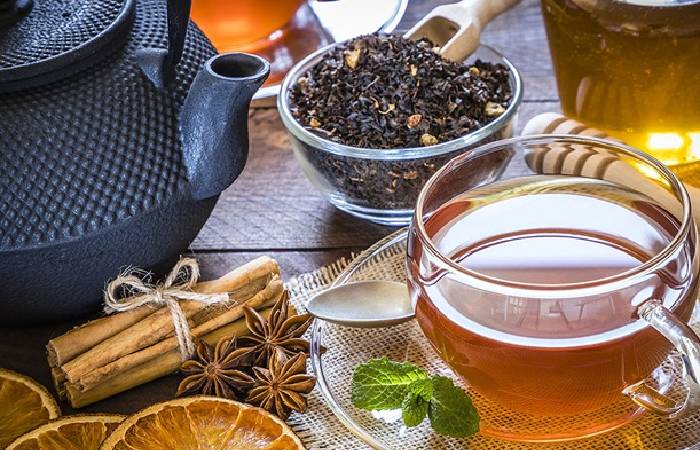How Ayurveda Helps Reduce Stress? – Excess stress affects the overall functioning of the body. It involves many systems in the body negatively. The digestive system and metabolic purpose (with inequalities in body weight), the cardiac system, the musculoskeletal system, the nervous system, the reproductive system, then the immune system.
Excess stress can also influence our mental and emotional states. It influence our relationships, and the health of our bones (and linked tissues such as the teeth, hair, then nails). The conclusion is that if you know that you’re strained (even occasionally), there is a good chance that making supportive adjustments could help you massively.
Ayurveda on Stress
It deeply activates, energizes, strengthens, motivates, mobilizes, and quickens. As a result, it starts the light, sharp, hot, dry, rough, mobile, delicate, and clear qualities in the body. It can be very adaptive and beneficial in the short term. But if this depleting pattern goes unchecked for any time, it will inevitably wear us down.
How Ayurveda Helps Reduce Stress? – Reappearance to Balance: Five Steps to Renewal
It means welcoming influences that are heavy, grounding, slow, buttery, nourishing, soft, and stabilizing while doing our best to minimize the impact of their opposites. The Ayurvedic approach to balancing extra stress is simple at its core.
How Ayurveda Helps Reduce Stress? – 1. Engage in Excellent Self-Care
Focused and devoted self-care can be a beautiful part of the curative process and a meaningful opportunity to exercise self-love. Each day, irrespective of whatever may be happening in our lives, an intense exercise of self-care confirms a deep commitment to Self, wellness, and vibrant health. Selecting to prioritize things like adequate rest and other nourishing traditions can help us stay centred as we navigate the unrest of the world around us.
How Ayurveda Helps Reduce Stress? – 2. Drink Herbal Tea

Consuming herbal tea is one of the easiest habits to slow down and de-stress with the help of herbs. It is an Ayurvedic tea that promotes happiness and a sense of peace. It features aromatic ingredients like hibiscus and rose, besides tulsi—all of which help soothe and lift the emotional heart, preparing this tea the perfect supporter for worrying days.
When recovering from excess stress, our bodies often need essentially more relaxation. In other words, at least for a while, it might be suitable to engage in more than eight hours of sleep each night.
3. Pledge to a Daily Routine
Ayurveda endorses a daily routine for everyone, but it is essential when balancing excess stress. Our physiology is adapted to—and supported by—some sense of regularity.
There are some simple first steps to establishing a daily routine—waking, consuming meals, going to bed at nearly the same time each day, and, if possible, maintaining a constant work or activity schedule. These steps alone can have a strong effect on the nervous system.
Together with self-care or mindfulness practices in your daily routine will provide a deeper level of support.
Exercise
When engaged appropriately, exercise can be a remedy for improved health. Exercise supports the body’s natural mechanisms of rejuvenation. It helps in sound sleep, the capability to relax, and a balance between the concerned and parasympathetic nervous systems.
Proper exercise helps to release collected tension, move motionless mental and emotional energy, and improve circulation. It also betters digestion, bolsters the body’s cleansing mechanisms, and encourages proper removal—all of which help counter excess stress’s effects.
Ayurveda offers the unique viewpoint that the type, duration, and strength of exercise that is most balancing for each of us depends mostly on our constitution and current state of balance
If you are not exercising regularly, remember that a supportive exercise program must not be complex or time-intensive. Twenty minutes of daily walking can greatly impact your body and mind.
4. Relaxes the Mind-Body Organism
Chronic stress results in ramping up the concerned nervous system so that our bodies respond to delicate situations as if they were profoundly threatening.
Ayurveda recommends subtle therapies like pranayama, yoga, and meditation to break this cycle, reset the nervous system, and cultivate a healthier physiological response to stress. Many Ayurvedic herbs also foster health in the mind and the nervous system and can be extremely supportive.
Yoga
Yoga moves energy in the body, helps disperse tension, clears stagnation, and inspires fluidity in the tissues and the mental and emotional ranges. Ayurveda suggests a nuanced approach to yoga that allows balance in whichever doshas need the most care in your system.
Meditation
Meditation assists us in developing this capacity through the cultivation of passive alertness and can inform a far healthier reply to stressful conditions. Over time, daily meditation can truly repattern the brain, serving to rewire our response to compelling circumstances.
Supportive Herbs and Formulas
Ayurveda also reveres some herbs for their capability to foster clearness and health in the mind-body organism. These herbs bolster the mind and the nervous system and can help to inspire a sense of effortlessness in the face of our daily challenges.
The powder of ashwagandha supports the body in coping with stress while calming the mind. Ashwagandha inspires quality energy throughout the day and sounds like sleep at night. Ashwagandha can be available in various products, and Ashwagandha tablets and liquid extracts also exist.
Brahmi/Gotu Kola powder is another extremely sattvic adaptogen famous for its ability to balance the nervous system and the mind. It is a cooling, calming tonic for pitta and helps calm Vata. Brahmi/Gotu Kola liquid abstract and tablets are also available.
Mental Clarity tablets offer deep support to the brain and the nervous system. This formula aids in calming the nerves while inspiring concentration, cleverness, mental health, and emotional constancy.
Stress Ease tablets give strength, resiliency, and tone to the neuromuscular system, serving the body to cope better. This blend of potent herbs introduces rejuvenating abilities that buffer the body contrary to weakness, tiredness, and overwhelm, helping us to handle physical, mental, and emotional challenges, all while supporting the preservation of a reliable energy level.
How Ayurveda Helps Reduce Stress? – 5. Eat a Supportive Diet
Consuming a balanced diet need not be an irresistible or taxing endeavour. When dealing with chronic stress, our lives are often rather difficult, and our systems generally respond better to comparatively simple solutions. The diet needs to be a whole source of nourishment and grounding.
If you don’t have much time to cook your meals, soups, stews, root vegetables, and other simple, grounding foods are usually good choices. Or, choose prepared foods associated with the healthy, whole food model. Asian eateries and the prepared foods section of many health food stores frequently have a good range of options.
How Ayurveda Helps Reduce Stress? – Conclusion
Hearing to yourself as you engage in this procedure is as important as each step above. A slow, simple, steady approach to change is far more likely to be helpful than an overly effortful attempt at perfection. Balance is by quieter, more nurturing qualities that are naturally hefty (or grounding), slow, cool, oily, and stabilizing. We hope to assist you on your journey towards a life of balance and vibrant health.

